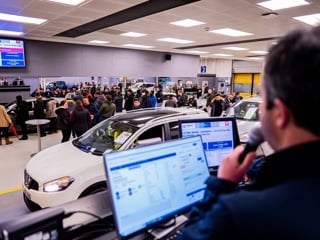Derivative uplifts are a more cost-effective way of enjoying higher specification than loading a car with options, according to CAP.
Optional extras typically retain no more than around 20% of their cost new while a derivative uplift can retain around 90% of the original additional expenditure.
For example, 3 years ago the combined cost of adding cruise control, rear parking sensors, electro-chromic rear view mirror, automatic air conditioning, multi-function steering wheel, interior lights pack and different style alloy wheels to a BMW 318d ES was £1,520.
In today's market, at 60,000 miles, the combined residual value of those features is £300, or 20% of the original cost new.
In contrast the cost of upgrading to the SE variant, which has the same list of features as standard, was £1,030, of which £925 - or 90% - has been retained today, at 60,000 miles.
According to CAP's Mark Norman, a better understanding of the true value of options helps fleets make more cost-effective vehicle purchase choices and they can also benefit by placing more emphasis on the options present on their stock at remarketing time.
Addressing the British Vehicle Rental & Leasing Association, Norman offered fleets 4 golden rules to ensure they make the most cost effective choices around the specification levels of their vehicles.
• If possible choose derivative uplifts rather than options
• Actively market options at disposal
• Assume most options will have zero value in the open used market
• There's no such thing as an "essential option"
Norman said: "Options are now too complicated to expect future buyers to understand the difference between standard an optional features.
"For example, on a BMW 318d ES there are 74 cost options, 4 no-cost options, 12 colours, 11 interior trim options and 5 option packs available.
"Expecting future buyers to be aware of what came as standard and what may have been an expensive extra is clearly unrealistic and you can be certain that if they don't know the origin of a feature, they certainly won't pay any more for it.
"That is why it is wise to specifically market the optional features on every vehicle when it is remarketed."
According to Black Book, the benchmark guide to current used values, many options retain so little of their cost new that it is wise to assume zero value in the used market. Factory-fitted Satellite Navigation, for example, can retain as little as 11% of its original cost after 3 years.
Norman added: "The trade is also fond of saying some options are ‘essential' but this tends to be true only in cases where you want to sell back into the franchise dealer network.
"Values in the used market, as reported in Black Book, show that in many cases the residual value penalty for the absence of a feature is actually less than the cost of originally purchasing it new."






















Login to comment
Comments
No comments have been made yet.